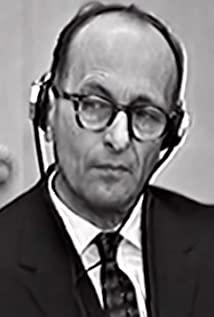A few things to think about:
One is that the pure friends of the Green Religion think that they are good and their religion is good, but they don’t care about other people’s use of the name of the group to increase the momentum of evil - being lazy or pretending not to see the loneliness is also a part of the evil of social people. species, a passive evil.
The second is the untraceable failure of large systems and the difficulty of accountability mentioned in the course Sicherheit und Zuverlaessigkeit. The same is true of human society. The film also mentions a word Buerokratie, bureaucracy, this word has a new expression in a new environment - a passive and evil characteristic of individuals in a large system giving up their personal initiative, let's call it evil , even when passively doing good deeds, is a kind of evil
Third, at the meeting discussing the abolition of the death penalty, the German girl said that the reason for the abolition of the death penalty is that this kind of systematisch murder (systematic murder) must never happen again. This is the case with the Nazis, and so is the death penalty. Germany is really too good at systematisch to do anything. The absence of many people and their different detachment from the Chinese may also have something to do with this
The fourth is to cite the example of the Bible. During the Third Reich, "you must not kill Miao" became "you must kill Miao", and people just obeyed an order from above and carried it out. I think of the Chinese people who are often compared to people who are saints and do not pursue anything above, but I also have doubts. Needless to say, the advantages of dualistic dialectics may be that there is no drastic reversal, and it is easy to fall into the emptiness of the soul and the random split of behavior.
Fifth is the only place where I re-read it twice. Hannah said in the class: The evil in the concentration camp is no longer driven by traditional evil personal motives such as human selfishness, but extreme and beyond personal motives. Related to this phenomenon: die ueberfluessige Machung des Menschen als Menschen (too many people). Concentration camps are designed to make the people inside understand that they are superfluous. Punishment has nothing to do with crime, labor does not bring benefits. There, human actions are meaningless. That is, there is no point in making daily. The final form of totalitarianism is absolute evil, and the nature of evil has an extreme nature. Without totalitarianism we cannot understand the radikal (extreme) qualities of evil.
Sixth, as Hannah mentioned in her comments, Jews everywhere have leaders, and some leaders cooperate with the Nazis. If the Jews are scattered and unorganized, then the total number of deaths must be less than that.
View more about Hannah Arendt reviews











